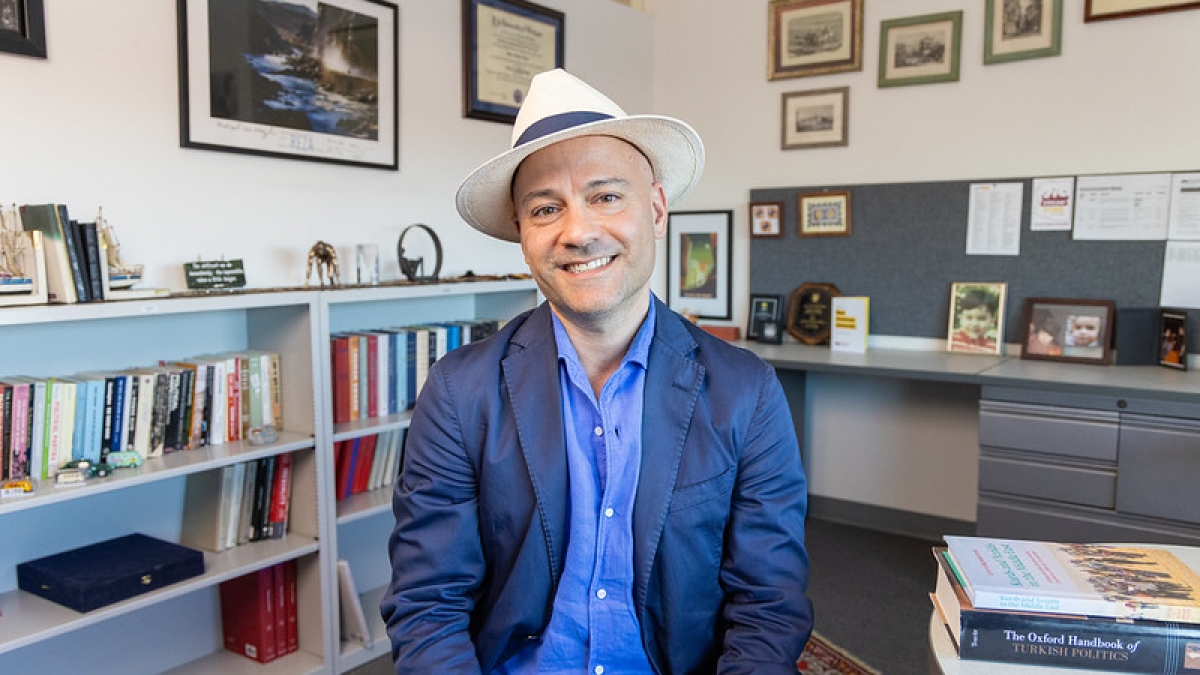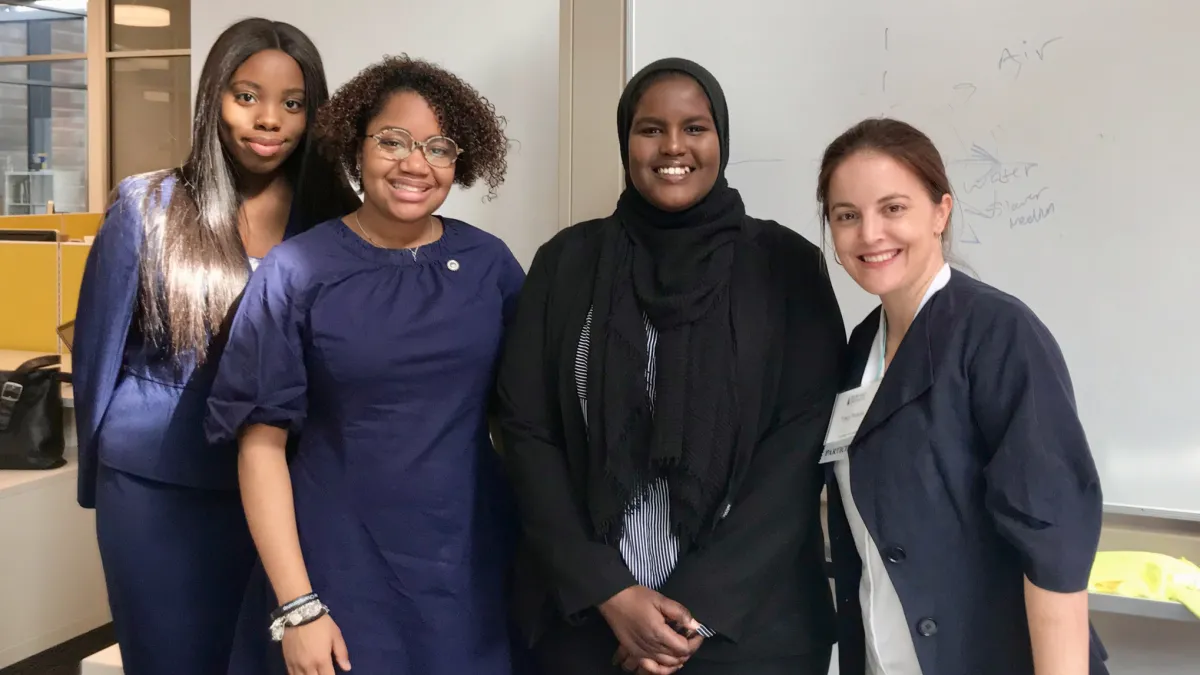Former security director: ISIS will lose, and soon
Center on the Future of War's public-forum series confronts complex issues head on

The evening began with a bold assertion:
“ISIS’ defeat in Iraq is all but certain, probably within the next 12 months.”
Douglas Ollivant, retired U.S. Army officer (pictured above), immediately tempered his statement: “I said that ISIS in Iraq will be defeated. I did not say that ISIS will not still be in Iraq as a terrorist movement.”
Issues of domestic and international security are rarely simple, and Ollivant, former director for Iraq at the National Security Council for both the Bush and Obama administrations, didn’t shy away from the complexity during his talk Thursday night on Arizona State University’s Tempe campus.
The discussion started off the second annual Spring Speaker Series, presented by ASU’s Center on the Future of War as part of a continued effort to provide a space where multilayered issues of domestic and international security can be openly discussed in an informal public forum.
The possibility of further global conflict and the United States’ place in it all are questions not always easy to grasp or comfortable to think about, but they are important for all people to consider.
“These are not academic talks, even though some of the speakers are academics,” said Daniel Rothenberg, professor at ASU’s School of Politics and Global StudiesThe School of Politics and Global Studies is a unit of ASU's College of Liberal Arts and Sciences. (SPGS) and co-director of the center. Peter Bergen, fellow SPGS professor, serves as the center’s other co-director.
“The idea is that these are talks that somebody can show up to and find compelling whether or not they’re familiar with a specific academic literature,” Rothenberg said. “So I’m most happy when we get a diverse audience, and when through these talks we generate interest in Arizona State University, in our collaboration between ASU and New America, and in deepening the debate about these pressing questions.”
Pressing questions like that of the defeat of ISIS. Ollivant acknowledged that there would still be a number of issues left to be resolved in the region, but he urged the audience to take into account the progress that has already been made.
“I think it’s very important for us to realize what we have created in Iraq,” he said. “We have bought — through blood and treasure — democratic institutions in Iraq.”

Daniel Rothenberg (left), co-director of ASU's Center on the Future of War, talks with retired U.S. Army officer Douglas Ollivant on Thursday in Tempe.
Photos by Charlie Leight/ASU Now
And though Ollivant allowed that those institutions may currently operate at a level that is less than optimal, they have demonstrated several times that they are capable of handling potentially incendiary situations with a peaceful outcome.
“Our return on investment [in Iraq] is rather disappointing, but it’s not zero,” he said. “There are democratic institutions there.”
Ollivant is the latest in Center on the Future of War’s speakers. Founded in 2014, the center links ASU and a group of roughly 95 affiliated faculty from multiple departments in the university with a group of about two dozen national-security experts based out of New America, a Washington, D.C.-based think tank — a sort of pipeline connecting ASU with the Washington world of thought leaders and policymakers.
During his visit to ASU, Ollivant also delivered a guest lecture to Rothenberg and Bergen’s “The Future of War” class, something all speakers are encouraged to do.
That the Washington visitors engage directly with students is important to the center, as is evidenced by the fact that all of this year’s talks are to take place on an ASU campus. As well, three of them are in coordination with ASU’s Walter Cronkite School of Journalism and Mass Communication and will feature prominent journalists, including Thomas E. Ricks, Pulitzer Prize-winning former reporter for the Wall Street Journal and Washington Post.
“The speakers are brilliant people who are acknowledged experts in their fields. And they are always presenting ideas — you may not agree with them — but they’re always presenting ideas with a level of depth and sophistication that is sometimes, if not often, absent from some discussions of these same themes, ISIS being a great example,” Rothenberg said.
Next up for the Spring Speaker Series is Rosa Brooks, Georgetown University School of Law professor and former counselor to the under secretary of defense for policy, U.S. Department of Defense. Her talk, “How War Became Everything,” is at noon Feb. 3 in West Hall 135, on the Tempe campus.
For a complete list of upcoming speakers and topics, click here.
More Law, journalism and politics

School of Politics and Global Studies director's new book explores mass violence
Why do people commit atrocities and why are certain groups, including religious and ethnic, more vulnerable to large-scale violence? These questions are explored in a new book by Güneş Murat Tezcür…

ASU faculty contributing to improvement of Wikipedia
Many academics have a love-hate relationship with Wikipedia. While the website has information about almost anything you can imagine, the credibility of that information is sometimes suspect. Tracy…

ASU Law students gain vital experience through Los Angeles location
Students at the Sandra Day O’Connor College of Law at Arizona State University may be concentrated in the school’s downtown Phoenix headquarters, but they have more choices than ever when it comes to…